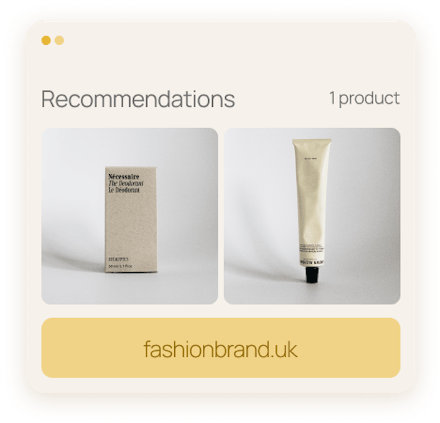The customer
data & experience
platform for retail
Create unforgettable customer experiences on every channel, powered by AI. Meet Ometria: the CDXP tailor-made for retail brands.
Powering
best-in-class brands





Steve Madden x Ometria
"On day zero we were able to unlock insights that our business has never had before”
– Hannah Sinclair
Director of DTC Retention Marketing & CRM
increase in
repeat rate
increase in customer
win-back
increase in lead conversion
Individually personalized experiences on every channel
From email to SMS, on-site to in-store, social audiences to app push and beyond – Ometria powers experiences that customers love across every touchpoint.
Ometria Architect AI
Explore Architect AI
Artificial intelligence
Learn more about Ometria’s suite of AI capabilities.

The customer experience
engine powering industry-leading retail brands
Repurchase rate increase
ROI
Net present value
Team efficiency
gained
Aggregate figures taken from Total Economic Impact
(TEI) report by Forrester
The industry-leading customer data and experience platform
Ometria is recognized as a leader in retail technology





“We are so happy to be working with Ometria. We needed a future-proof solution that would allow us to innovate and could keep up with our scaling business.”




























